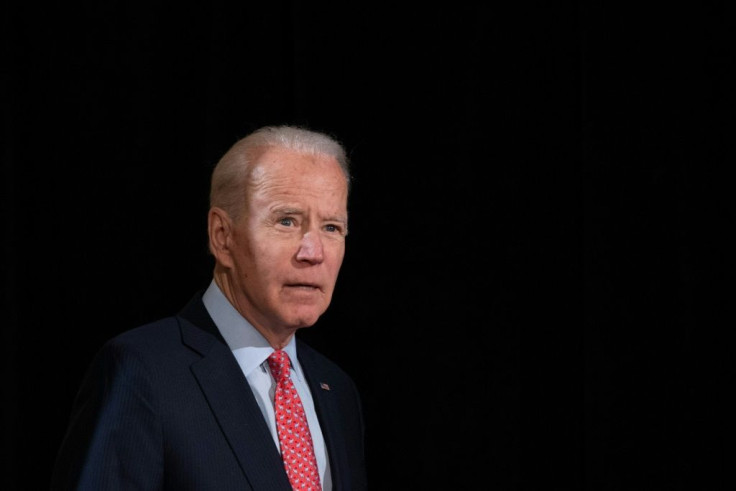Biden Campaign Is Still Figuring Out How to Exploit Rising Anti-China Sentiment
KEY POINTS
- 72% of Republicans and 62% of Democrats hold a negative view of China
- Trump, Biden try to outsmart the other in China baiting
- Biden's tune changed dramatically from where it was 2 months ago
President Donald Trump's claim that his presumptive Democratic challenger, Joe Biden, “protected China’s feelings” during the early stages of the COVID-19 pandemic forced the former Vice President to launch a counter attack that was even seen as xenophobic. Biden's campaign strategy seems to have been tailored to suit a shift in his support base, as revealed in a new poll.
Biden's China-centric ad targeting Trump on April 18 came a week after Trump launched an ad with a misleading story assembled by what Politifact called “deceptive editing.”
Biden’s attack ad is graded as less deceptive by fact-checkers, although Politifact said the ad “misleads on the CDC’s power to get on the ground in China.” Additionally, many blasted the Biden ad for being tone-deaf at a time when Asian Americans face increasing racist threats, given that the language in the ad focused on the "Chinese" and not the "Chinese government."
Contrasting this most recent ad from the Biden camp to his stance just a couple months ago reveals a campaign still trying to figure out how to harness the rising anti-China sentiment amongst the American electorate. On January 31, just before the Iowa Caucuses, Biden criticized Trump's attacks on China, saying "This is no time for Donald Trump’s record of hysteria and xenophobia - hysterical xenophobia - and fearmongering to lead the way instead of science."
In Biden's most recent attack ad, he claimed that "Trump rolled over for the Chinese" and attacked Trump for "letting in 40,000 travelers from China."

A Pew poll indicates that Americans have an increasingly distrustful view of China as the COVID-19 pandemic worsens. Two-thirds of Americans hold a negative view of China versus just 26% with a favorable view of the country where the coronavirus originated. Like most political subjects in America these days, there is a partisan split at the heart of these figures. Republicans are likelier to have a negative view of China (72%), but 62% of Democrats also hold a negative view of the country, up from 41% in Pew’s polling from 2017.
The larger split in polling is actually by age, as 53% of those aged 18 to 29 view China negatively, compared to 67% of those aged 30 to 49 and 71% of those over 50. While all these figures can be sliced and diced in myriad ways to reveal various biases of different groups on the subject of China, the overall theme is the same: Since 2017, all Americans have increasingly viewed China in a negative light, and that dynamic has accelerated during the COVID-19 pandemic.
A year ago, Pew found that 50% of Americans have no confidence in Chinese President Xi Jinping “to do the right thing regarding world affairs,” and the latest figures peg Xi’s no-confidence vote amongst Americans at 71%.
It is clear that the Biden campaign is striking a very different tone on China than they were just a couple months ago. Initially, attacking Trump for being xenophobic was the line Biden adopted, but now he is attacking Trump for not restricting travel from China enough. Joe Biden’s son, Hunter Biden, and his Chinese business contacts will certainly be a central feature in Trump’s attack ads going forward, despite there currently being no evidence that either Biden did anything illegal.
© Copyright IBTimes 2024. All rights reserved.





















